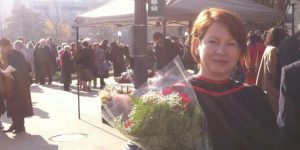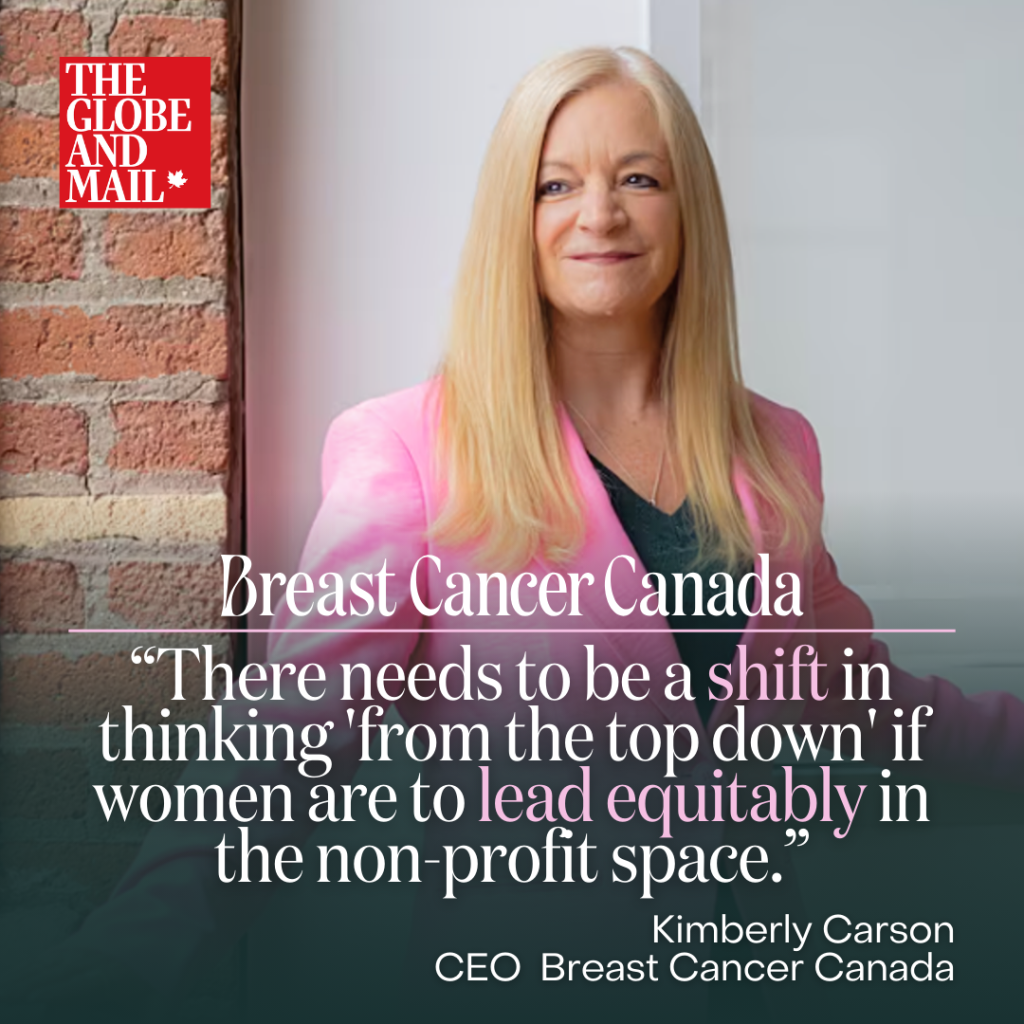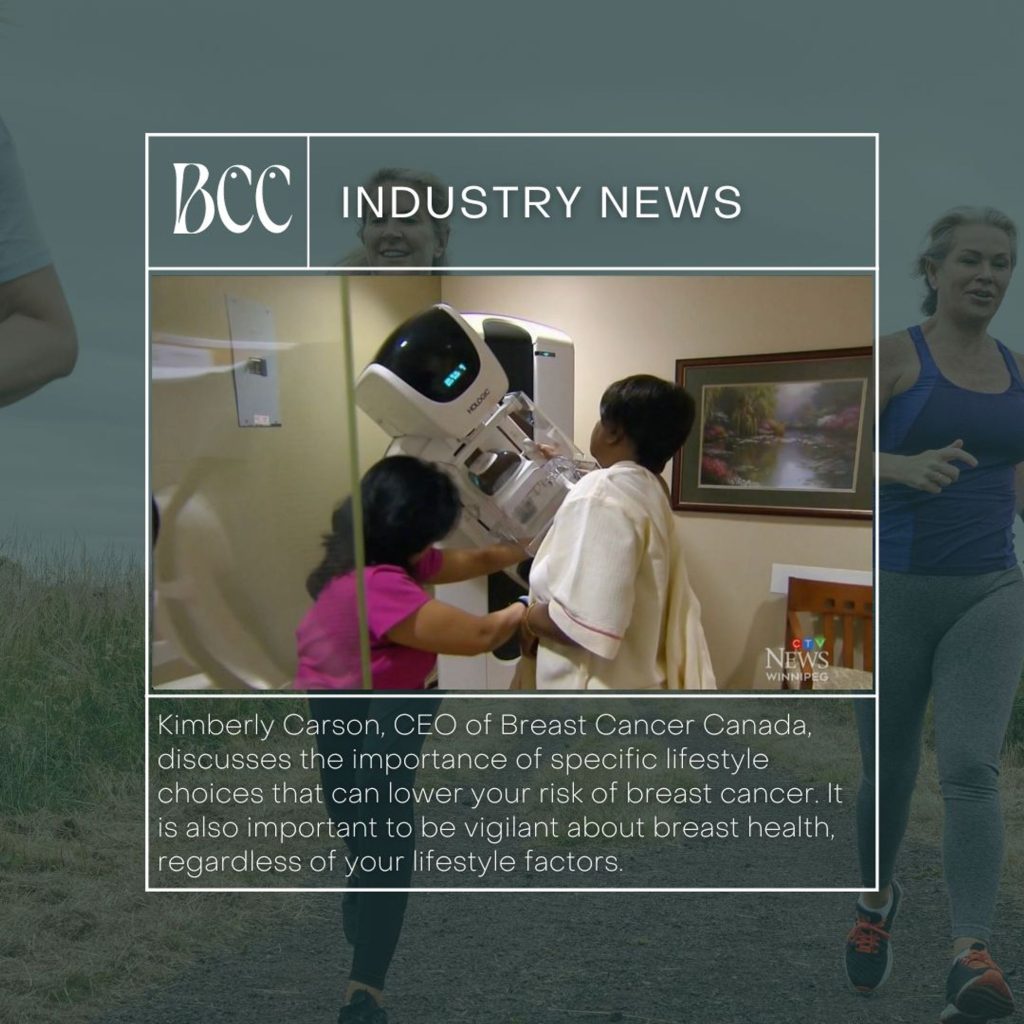I distinctly remember the feeling I had when I heard my diagnosis. It happened 7 years ago, the end of November 2011. I remember feeling a paralyzing fear so intense that I was unable to move or breathe. My mother and grandparents died of cancer, so somewhere deep in my mind, I admitted the possibility that I may someday develop a cancerous condition, too. But there is no way to prepare for cancer.
Within six months from the initial diagnosis, I underwent two surgeries, eight courses of chemotherapy, 33 sessions of radiation therapy and embarked on a course of hormonal therapy. It was a painful and challenging journey, yet it was also an excessively memorable and eye-opening time in my life. I am able to share my story today because of the work of countless researchers. I know how much work researchers have done in the past and continue to do to fight breast cancer. I live, work, and enjoy spending time with my family and friends thanks to their efforts to find a cure for cancer.
Breast cancer is insidious because at first there are no symptoms or warning signs. It happens quite often that women will accidentally find a lump in their breast that turns out to be malignant. I encountered such a lump, and it felt strangely different from what a simple cyst typically feels like. It was hard and did not move when pushed. It took me 10 minutes of browsing the Internet to know I had a reason to be scared. That is precisely how the sources I had looked up described the symptoms of breast cancer: “A suspicious cancerous growth is normally much stiffer than the background of normal tissue.”
I am sure you can understand how scared I was. After that, I had a mammography, ultrasound, MRI, and biopsy, which only confirmed that “yes, this is cancer, unfortunately.” My treatment began, and it would seem that I should have been even more frightened at the beginning of this long journey; however, with each step, I became calmer and more confident. I found my personal cure against fear: knowledge. It may seem surprising, but the more I learned about the details of my treatment, the more I understood that there are options, and my doctor is able to choose what suits me best.
I had my bit of good luck in meeting some excellent doctors. They always found the time to share their knowledge with me and answer my many questions. I found out that 50 years ago – around the time when my grandma underwent her treatment – oncology was a surgical branch of medicine because there were almost no medications for treating cancer. Oncologists were trained as surgeons. This was the situation all over the world throughout the 1960s and 70s. These days, modern oncology employs a multi-disciplinary approach where surgery is only one of the methods of treatment available to patients. In some cases, no surgery is necessary, because either the pills or radiation therapy will do the job. This all became possible because of research.
“You know who is an oncologist’s best friends?” my doctor asked me one day. – “Researchers. Just one example. We run the Oncotype DX test for breast cancer patients. This test allows to assess the recurrence risk in patients and helps us select the proper treatment course. It was unavailable just 20 years ago, but now we use it routinely. And the more versatile medications we physicians are able to use, the longer our patients live. And all of that is thanks to great research advancements.”
 When asked how much cancer changed my life, I reply: “Very much. Significantly”. After completing my treatment, I became a cancer research advocate with a particular focus on breast cancer. Since then, I have written many news and blog posts on cancer research achievements. What I love most about this is having the opportunity to meet researchers and interview them. I can get all the information I need from them directly, and I can track in real time what is happening in this area. And significant things happen! In the last ten years alone, about 100 new treatment protocols have become available for breast cancer patients. Thanks to research, treatment is becoming more targeted and personalized, so more patients can benefit from these current protocols.
When asked how much cancer changed my life, I reply: “Very much. Significantly”. After completing my treatment, I became a cancer research advocate with a particular focus on breast cancer. Since then, I have written many news and blog posts on cancer research achievements. What I love most about this is having the opportunity to meet researchers and interview them. I can get all the information I need from them directly, and I can track in real time what is happening in this area. And significant things happen! In the last ten years alone, about 100 new treatment protocols have become available for breast cancer patients. Thanks to research, treatment is becoming more targeted and personalized, so more patients can benefit from these current protocols.
There is little wonder that my interest in research finally led me to the Princess Margaret Cancer Research Centre in Toronto, where I currently work, providing the investigators there with administrative support. It is true that the battle with cancer has not yet been won. Cancer is a smart and dangerous animal that has many faces, and more research is required to eradicate it. Fortunately, the more research we do, the better we understand cancer. And the deeper this understanding, the better practitioners can prevent, detect and treat cancer. I know this firsthand, as I see every single day how researchers work and the results they achieve.
I will forever remember a pep talk my doctor gave to me seven years ago: “You are cancer-free now. Be happy today and share it with your loved ones. Don’t put your life off for tomorrow or next year. People should just lose all fear and celebrate life, because we, the researchers and doctors, are working on a cancer cure, and we will come up with something, I promise.”
It is incredibly important to support research. Let’s donate to help researchers end breast cancer. In this battle, every contribution matters because it brings us a step closer to a cancer-free future for every patient.
Natalia Mukhina
Is a health journalist, reporter and cancer research advocate with a special focus on breast cancer.
Your donation to The Breast Cancer Society of Canada will help fund breast cancer research. Give today, help save lives by supporting life-saving breast cancer research because … Research Matters.




